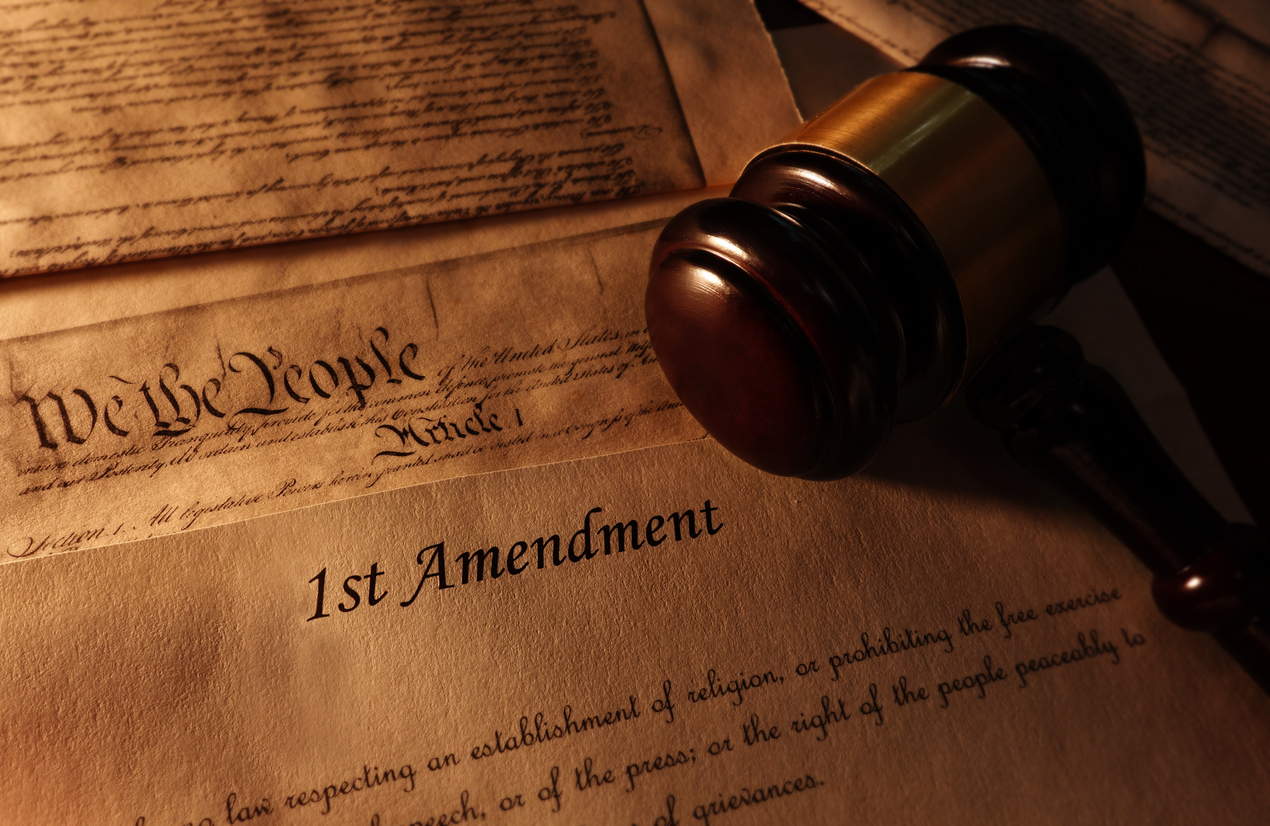Catholic Charities Bureau v. Wisconsin Applies the Establishment Clause to Prevent Religious Discrimination
Proponents of religious liberty will be quick to celebrate the US Supreme Court’s unanimous decision in the recent Catholic Charities Bureau v. Wisconsin case, and for good reason. At face value, the Court’s ruling affirmed that the faith-based nonprofit was improperly excluded from a religious exemption from a Wisconsin tax. However, the opinion provides a much greater victory for faith and freedom by continuing to build an Establishment Clause jurisprudence that supports rather than constricts the free exercise of religion.
For the last century1, Catholic Charities USA has worked to “build bridges of hope, mercy, and justice toward the creation of a culture of communal care responsive to the cries of those who are poor.”2 It operates in several states through roughly 150 agencies under the leadership of the local bishop. In accordance with Catholic teaching expounded in Apostolorum Successores, many of its charitable efforts do not directly attempt to convert the people that it serves. Rather, volunteers seek to evangelize in a more subtle manner, showing the face of Christ through action rather than word. This is true of Catholic Charities’ Wisconsin branch (“Catholic Charities”) that serves the impoverished in several communities throughout the state. To better carry out its mission, the nonprofit applied for a religious exemption from Wisconsin’s unemployment tax. However, the request for an exemption was denied after the Wisconsin authorities determined that Catholic Charities was not “operated primarily for religious purposes”3 since it neither proselytizes nor restricts its services to only those of a particular faith. After years of appeals, the US Supreme Court unanimously ruled in favor of Catholic Charities
The Court’s ruling, authored by Justice Sotomayor, relies largely upon the Establishment Clause to explain why Catholic Charities should receive the exemption. While the outcome itself is a victory for faith-based nonprofits, this line of reasoning is a welcome indicator that the judiciary will continue to deploy the First Amendment’s Religion Clauses to protect the right of Americans to practice their faith without discrimination.
Several recent religious liberty cases at the Supreme Court – from Trinity Lutheran to Espinoza to Carson v. Makin - resulted in landmark victories for religious plaintiffs. While modern First Amendment jurisprudence has often favored religious liberty and has even moved away from a questionable understanding of the Establishment Clause, there has been infrequent use of the Establishment Clause to support the rights of religious plaintiffs.4 Fortunately, the Catholic Charities case works to fill that void, or at least moves the Court in the right direction.
Catholic Charities Bureau v. Wisconsin follows the trend from Kennedy v. Bremerton, a 2022 Supreme Court case that ruled in favor of a public school’s football coach who prayed on the field after each game. There, the Court recognized that the Religion Clauses work in tandem rather than in conflict. The opinion states that “a natural reading of that sentence [the Religion Clauses of the first amendment] would seem to suggest the Clauses have ‘complementary’ purposes, not warring ones where one Clause is always sure to prevail over the others.”5 The Kennedy opinion interpreted the Establishment Clause as an additional protection for religious individuals that works with the Free Exercise (and the Free Speech) Clause. Similarly, Catholic Charities states that Wisconsin’s exclusion of Catholic Charities actually violates the Establishment Clause by “grant[ing] a denominational preference by explicitly differentiating between religions based on theological practices.”6 Wisconsin denied Catholic Charities the tax exemption based solely on the content of its religious practice – the nonprofit followed Church teaching by not actively proselytizing and was consequently deemed to be not primarily religious. By treating one sect differently from others based on its beliefs and practices, the Court held that Wisconsin made an improper doctrinal decision and violated the Establishment Clause’s requirement that government not favor one religion over another.
The Religion Clauses of the First Amendment (Establishment and Free Exercise) properly understood work together to support religious freedom for all in the United States. The Free Exercise clause prevents a government from prohibiting the free exercise of religion, while the Establishment Clause prevents a government from favoring certain religions while excluding others in its laws. While several recent high-profile Supreme Court cases have yielded favorable outcomes for religious liberty, they have often been focused on the Free Exercise Clause. The recent Catholic Charities case is a hopeful example of good Establishment Clause precedent that can strengthen religious liberty and foster a society rich in faith and freedom.
-----------------------------------
1 Our History, Catholic Charities USA https://www.catholiccharitiesusa.org/about-us/our-history/
2 Our Mission, Catholic Charities USA https://www.catholiccharitiesusa.org/about-us/mission/
3 Catholic Charities Bureau, Inc. v. Wisconsin Labor & Industry Review Comm’n, 605 U.S. PAGE, 2 (2025)
4 Professor Vincent Muñoz, GUEST: The Foundations of Religious Liberty in America with Professor Muñoz, The Napa Legal Podcast (June 11, 2025) https://www.youtube.com/watch?v=NloOyJ_zuLU
5 Kennedy v. Bremerton School Dist., 597 U.S. 507, 527 (2022)
6 Catholic Charities Bureau, Inc v. Wisconsin labor & Industry Review Comm’n, 605 U.S. PAGE, 10 (2025)
.png)




